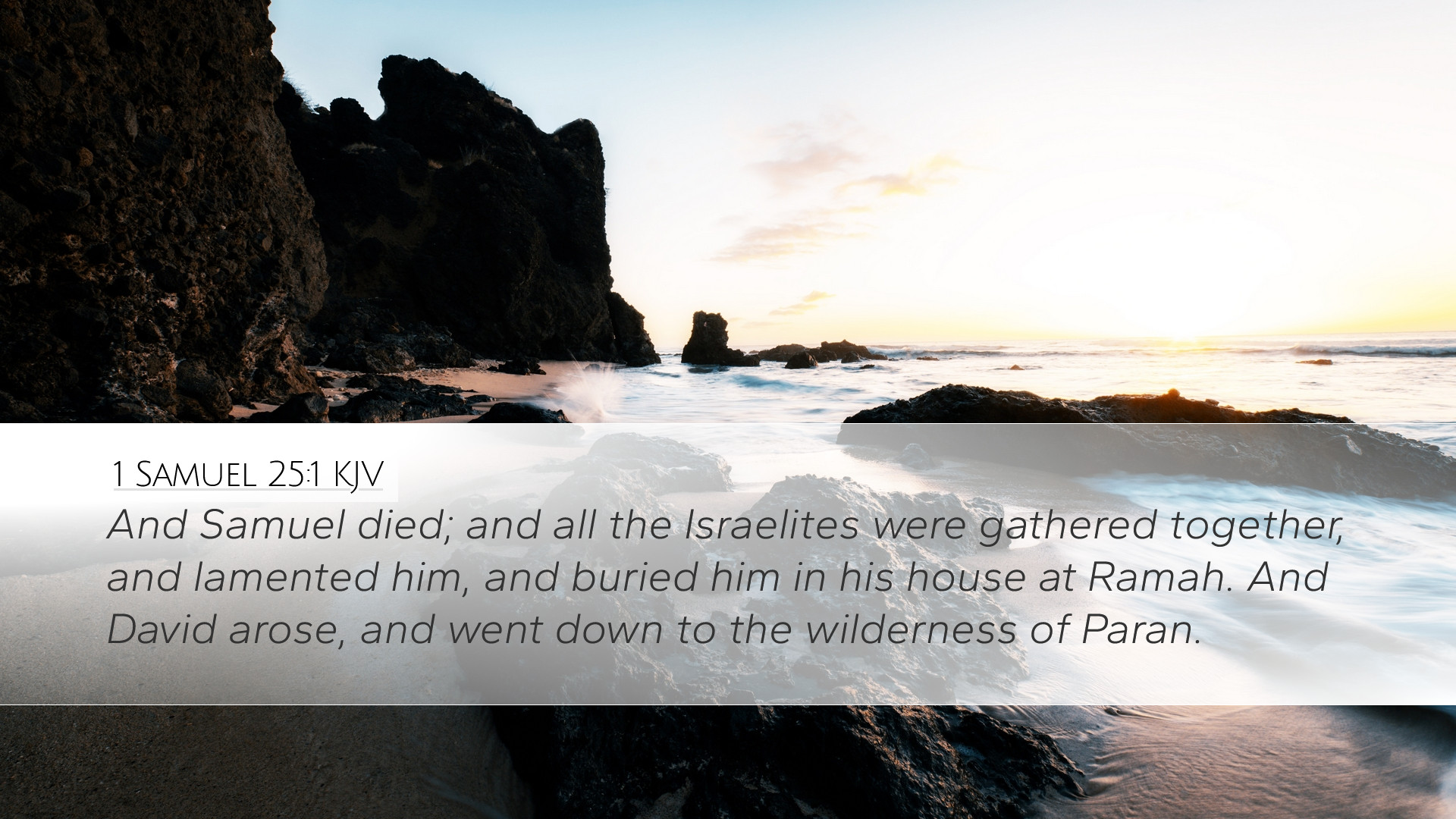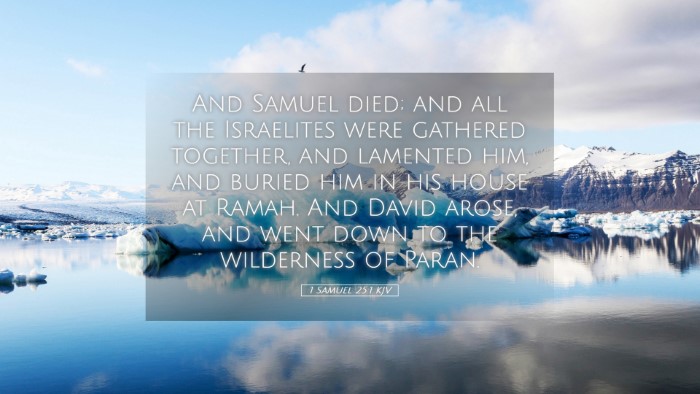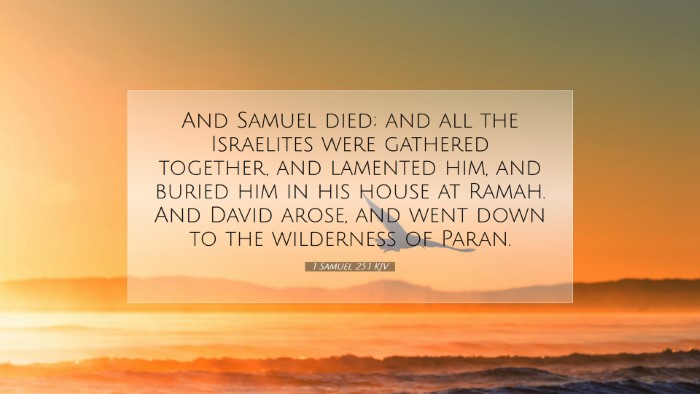Commentary on 1 Samuel 25:1
Verse Text: "And Samuel died; and all the Israelites were gathered together, and lamented him, and buried him in his house at Ramah. And David arose, and went down to the wilderness of Paran." (1 Samuel 25:1)
Introduction
This verse serves as a pivotal transition in the narrative of 1 Samuel, marking the death of the prophet Samuel, a significant spiritual leader for Israel. The verse encapsulates profound themes such as leadership, loss, and the preparation for subsequent events that will unfold in the biblical narrative, particularly concerning David.
Overview of Samuel's Significance
As noted by Matthew Henry, Samuel was a central figure in the Israelite community, serving as both a judge and prophet. His death signifies not only the end of an era but also the state of the nation at that time, which was heavily influenced by Samuel's leadership.
Albert Barnes provides insight into the lamentation of the Israelites, emphasizing that Samuel's impact lasted beyond his life. His role in anointing kings and guiding Israel's ethical compass made his absence profoundly felt among the people.
The Lamentation of Israel
The gathering of the Israelites to mourn Samuel illustrates their respect and appreciation for his lifetime of service. Adam Clarke suggests that this communal mourning reflects the cultural practices of ancient Israel, showcasing the unity and shared grief of the community. It further indicates that Samuel's death was a critical moment that warranted a national response.
Burial at Ramah
In burial practices, the location is often imbued with meaning. Matthew Henry remarks on the significance of Samuel being buried in his own city, Ramah, which symbolizes a return to one's roots and heritage. This burial site acknowledges Samuel's integral role within the local community and serves as a place for the people to remember his contributions.
David's Response
The latter part of the verse commences with David arising and going to the wilderness of Paran. This movement is not merely geographical but laden with emotional and spiritual implications. Albert Barnes observes that David's transition into the wilderness signifies a retreat into a place of solitude and reflection, hinting at the challenges that lay ahead. The wilderness represents both physical barrenness and a spiritual testing ground.
Theological Implications
This verse encapsulates the theme of divine providence in the midst of human grief. Adam Clarke comments on how God often uses the death of prominent figures to set the stage for His continuing work among His people. Samuel's death ushers in a new chapter in Israel's history, where David must step forward amidst the loss of a guiding figure.
Matthew Henry adds that transitions like these serve to remind believers of the transitory nature of human leadership and the ultimate sovereignty of God. While leaders may come and go, God's plans and purposes endure forever.
Practical Application for Believers
For pastors, students, and scholars, this verse encourages reflection on the importance of leadership within the church and community. It reminds us that while we may grieve the loss of beloved leaders, we must continue to seek God's guidance moving forward.
- Understanding Leadership: Assess the qualities that make for effective spiritual leadership. How did Samuel embody these qualities, and how can modern leaders learn from his example?
- Lamenting Loss: Create space within congregations for communal mourning. As seen with the Israelites, acknowledgement of grief strengthens community bonds.
- Seeking Direction in Wilderness: Recognize that periods of uncertainty or wilderness can lead to spiritual growth. Encourage congregants to seek God in times of distress.
Conclusion
1 Samuel 25:1 serves as a deep well of insight into the dynamics of leadership, communal mourning, and divine intervention. By approaching this text through the lenses of different commentaries, we find rich layers of meaning that continue to speak to today's readers.
As we meditate on both the loss of Samuel and David's journey, may we be reminded of God's unchanging nature amidst our changing circumstances, urging us to trust in His providence for our lives and communities.


